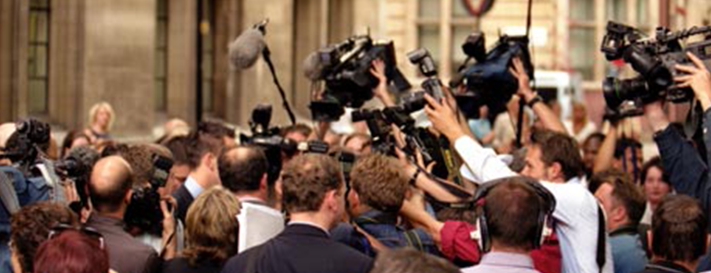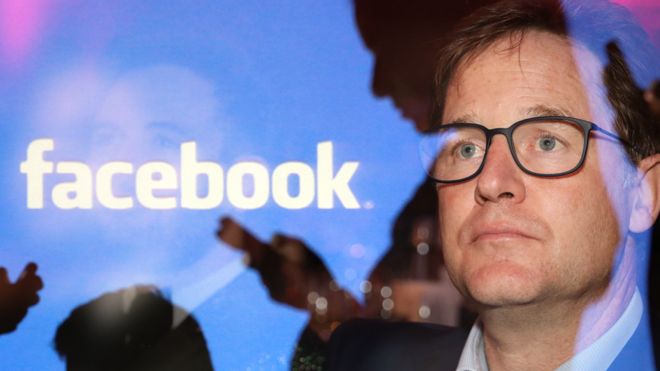 In his latest blog, George Pitcher asks what is in the Clegg appointment for Facebook and concludes that he can be a prophetic voice in Mark Zuckerberg’s wilderness
In his latest blog, George Pitcher asks what is in the Clegg appointment for Facebook and concludes that he can be a prophetic voice in Mark Zuckerberg’s wilderness
As the Times columnist Hugo Rifkind has noted, social-media posts about Nick Clegg over the past week or so have divided fairly neatly between those who are disappointed with him for accepting a job at Facebook and those who are disappointed with Facebook for hiring him.

The only people not disappointed with the appointment seem to be Facebook’s Mark Zuckerberg and Sheryl Sandberg and, of course, Clegg himself.
Almost universally, the question has been raised whether Clegg has the backbone and moral will to stand up to Facebook on issues such as data harvesting and leaking, Russian propaganda and tax avoidance (£15.8 million in the UK last year on sales of £1.3 billion).
Here, the omens are not good. Cleggism has become a byword in British politics for subservience and sell-out. An argument runs that Clegg kept David Cameron and George Osborne in power in a coalition that has a direct political continuum to Brexit, which he now so bitterly opposes. He rolled over on his election pledges on student tuition fees and Lords reform. Difficult to imagine him sitting with Zuckerberg/Sandberg and saying “I can’t let you do that”.
Difficult dilemmas
Clegg says he’s spent a lot of time with “Mark and Sheryl” over the past 18 months. And he seems in no doubt that he will be working with them rather than just for them, as he puts it (appropriately enough on a Facebook video) to “address and grapple with difficult dilemmas”, working on “how tech and society accommodate to each other in the years ahead.”
If that’s the case, then he won’t simply be an apologist for Facebook’s worst excesses, a PR flak to take the heat off his corporate master and mistress. But it also raises another question. We know why Clegg has taken the job (to “exciting opportunity” we can reasonably add money and Californian family lifestyle) – but what’s in it for Facebook?
Clegg’s political capital is low. “Busted flush” may be too unkind, but “has-been” probably isn’t. Having been deputy prime minister, he is no longer even in parliament. But he is a former MEP and Brussels political lobbyist and he knows how the EU works. He can ground Facebook in the machinations of European Commission regulation, which Zuckerberg concedes is inevitably coming (in the US too).
But more than that, Facebook may be buying a conscience for its million-buck salary. Zuckerberg’s is a rarefied existence in which the usual rules of accountability are difficult to apply. That was apparent in his witness appearances before the US senate – they could barely touch him and he knew it.
Conscious of legacy
Roman emperors used to employ a slave to whisper in their ear “You too are mortal”. Zuckerberg may need that role and Clegg may be the person to deliver it. If not so much to put Zuckerberg – a young man – more firmly in touch with his mortality, but certainly to make him conscious of his legacy. Remember that our Facebook profiles are but dust…
Another way of putting it is that Facebook – and the other social-media giants – need a prophetic voice, crying out in the media wilderness. Saying the unsayable, such as “people don’t need this” or “don’t steal advertising” or, indeed, “pay more tax”. The prophetic voice is different from a priestly one, which would simply, if importantly, hear Facebook’s private confession and publicly absolve it. That’s the role of the flak (it’s putting the PR in priest, if you like).
Those who are disappointed with Clegg’s new job must at least hope that he is up to bringing conscience and a prophetic voice to the Facebook party. This is not about religion. Clegg is famously an atheist (though his wife, Miriam, is a committed catholic and would understand the vocabulary). But Clegg can adopt that voice in the secular environment in which corporate culture necessarily resides.
Because that is the root of corporate ethics. It’s not about companies being “nice”. Only the most militant anti-capitalists want to see oil companies dismantled and destroyed. But arguably most people would want the oil companies to have a conscience, while still enabling them to drive their cars and offering alternatives to fossil fuels. We want them to care about what they are doing, about oils spillages and the environment, while enabling us to do what we want to do.
So it is with the social-media corporates. Well over two billion people worldwide want to continue to use Facebook, rather than have it banned or dismantled. But most of us want it to care about what it is doing. Regulation can only do so much – corporate conscience does the rest.
Ethical corporates employ that conscience, the slave who speaks truth to power, a prophetic voice in their neo-liberal market wildernesses, the one who says thus far and no further. If that’s what Clegg means by an “exciting opportunity” then he’s the man for the job.
George Pitcher advises Dow Jones, publisher of the Wall Street Journal, on ethics and the future of journalism and is a Visiting Fellow at LSE. He formerly held senior editorial positions at The Observer and the Daily Telegraph. @GeorgePitcher
Views expressed are the author’s and do not necessarily reflect those of Dow Jones or the LSE.





